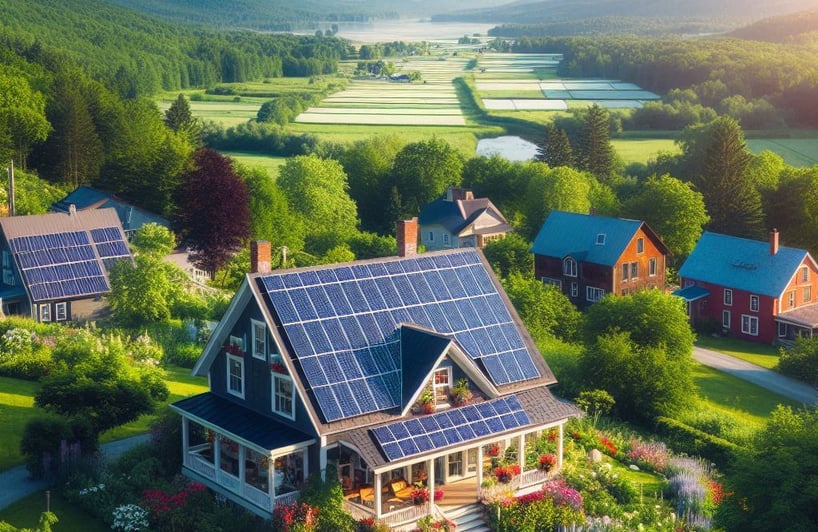Harnessing Solar Power for Energy Independence in Rural Communities
5/2/20242 min read


Why Country Living has Always Meant Energy Independence
Living in the countryside has long been associated with a sense of independence and self-sufficiency. Away from the hustle and bustle of urban areas, rural communities have traditionally relied on their own resources to meet their needs, including energy. One of the most sustainable and practical ways for rural communities and traditional towns and villages to achieve energy independence is through the adoption of solar power. Solar power offers numerous benefits for rural communities. Here are a few reasons why they should consider adopting solar energy:
Energy Security
Rural areas often face challenges in accessing reliable and affordable energy sources. By embracing solar power, these communities can reduce their dependence on the traditional energy grid. Solar panels can generate electricity even in remote areas, providing a reliable and consistent source of energy. This not only enhances energy security but also reduces the risk of power outages, which can be particularly detrimental in rural areas where access to essential services may be limited.
Cost Savings
Switching to solar energy can lead to significant cost savings for rural communities. Traditional energy sources, such as fossil fuels, are subject to price fluctuations and transportation costs. Solar power, on the other hand, relies on a free and abundant resource: the sun. Once the initial investment in solar panels is made, the cost of generating electricity becomes minimal. This can help alleviate the financial burden on rural households and businesses, allowing them to allocate their resources to other essential needs.
Environmental Sustainability
Rural communities often have a deep connection to nature and the environment. Adopting solar power aligns with their values of sustainability and conservation. Solar energy is a clean and renewable source of power, producing zero greenhouse gas emissions. By transitioning to solar, rural communities can reduce their carbon footprint and contribute to the global effort to combat climate change. Additionally, solar panels require minimal maintenance and have a long lifespan, further minimizing their impact on the environment.
Community Engagement
Engaging the community in the decision-making process is crucial for successful solar adoption. Educating residents about the advantages of solar energy, addressing any concerns or misconceptions, and involving them in the planning and implementation stages can help build support and ensure a smooth transition.
Financial Support
Access to financing options and incentives can make solar adoption more feasible for rural communities. Governments and organizations provide financial support, such as grants or low-interest loans, to help offset the initial costs of installing solar panels. Additionally, offering incentives, such as tax credits or feed-in tariffs, can further encourage the adoption of solar energy. in many cases you can get a zero down solar system put on your roof allowing you to reduce your overall costs as soon as its installed!
In Conclusion.
Solar power holds great potential for rural communities and traditional towns and villages to achieve energy independence. By embracing solar energy, these communities can enhance their energy security, reduce costs, and contribute to environmental sustainability. With the right support and planning, the transition to solar power can bring long-term benefits to rural areas, fostering a more resilient and self-sufficient way of life.
